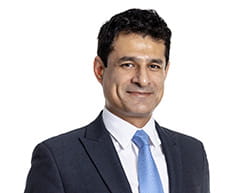Community structuring has long been a hotly contested topic within the Kingdom of Bahrain, and the wider GCC. The default position for developers in Bahrain, under Law No.(27) of 2017 ("Law 27") and the subsequent resolutions, is for ownership and management of joint property common areas to be transferred to an owners' association.
These owners' associations are made up of unit owners within a development, and they are responsible for the upkeep and maintenance of the common areas. In some cases this has worked very well, with pro-active owners taking pride and responsibility in their obligations, in order to maintain the aesthetic and financial value of the development.
However, there have also been instances where developments have been mismanaged and there is potential for developments to fall into a state of disrepair. This ultimately has a negative effect on the reputation of the developer. As a result, developers have long been canvassing for reform that will enable them to carry out the long term maintenance of joint property common areas within their developments. The Real Estate Regulatory Authority ("RERA") has sought to address developers concerns with Decree Law No.41 of 2022 (Law 41).
It should be noted from the outset that the changes brought in force only apply to those developments where units have not yet been sold or marketed. We are yet to see if RERA will issue any resolutions with regards to existing developments, and whether there will be any scope for them to operate under Law 41.
Decree Law 41
Law 41 has brought into force provisions for developers to apply for a licence from RERA that will allow them to undertake the management, operation, maintenance and repair of the common areas. Once the licence has been obtained by the developer, they may choose to appoint a third party to manage the common areas, and oversee their activities. Alternatively, if the developer wishes to carry out the management of the common areas themselves, RERA may require the developer to set up a separate company for this alone, but the developer will always remain jointly liable.
From a resident's point of view, they will still have a voice and an opportunity to engage with the developer with regards to the management of the common areas. Where a developer decides to manage the common areas, Law 41 permits the formation of an "owners' committee" in place of an owners' association. The owners' committee shall be made up of unit owners, and their responsibilities shall include providing advice and assistance to the developer, monitoring the developer's performance in managing the common areas, examining budgets and agreements concluded by the developer, handling complaints of individual unit owners and communicating with RERA.
Owners Committee
Law 41 also provides owners committees with the powers to submit a request to the court to terminate the developer's management if the developer fails to perform its obligations and duties with competence and care, carries out unlawful actions or commits gross negligence. Furthermore, if unit owners owning 75% of the common real estate units submit a request to the court to terminate the developers management, the court may do so without considering the parameters set out in Article (70 bis 8)(A).
As a result, Law 41 seeks to balance the needs of both developers and owners, by allowing developers to manage and maintain the common areas to a standard in keeping with their brand value, and for owners by allowing them to monitor and supervise the developer's actions to ensure they are discharging their obligations correctly. It is yet another step taken by the Kingdom to ensure that the real estate market continues to evolve in order to bring the Kingdom into line with international best practice and instil high levels of consumer confidence. This further reaffirms the Kingdom's long term strategic vision which goes from strength to strength.

